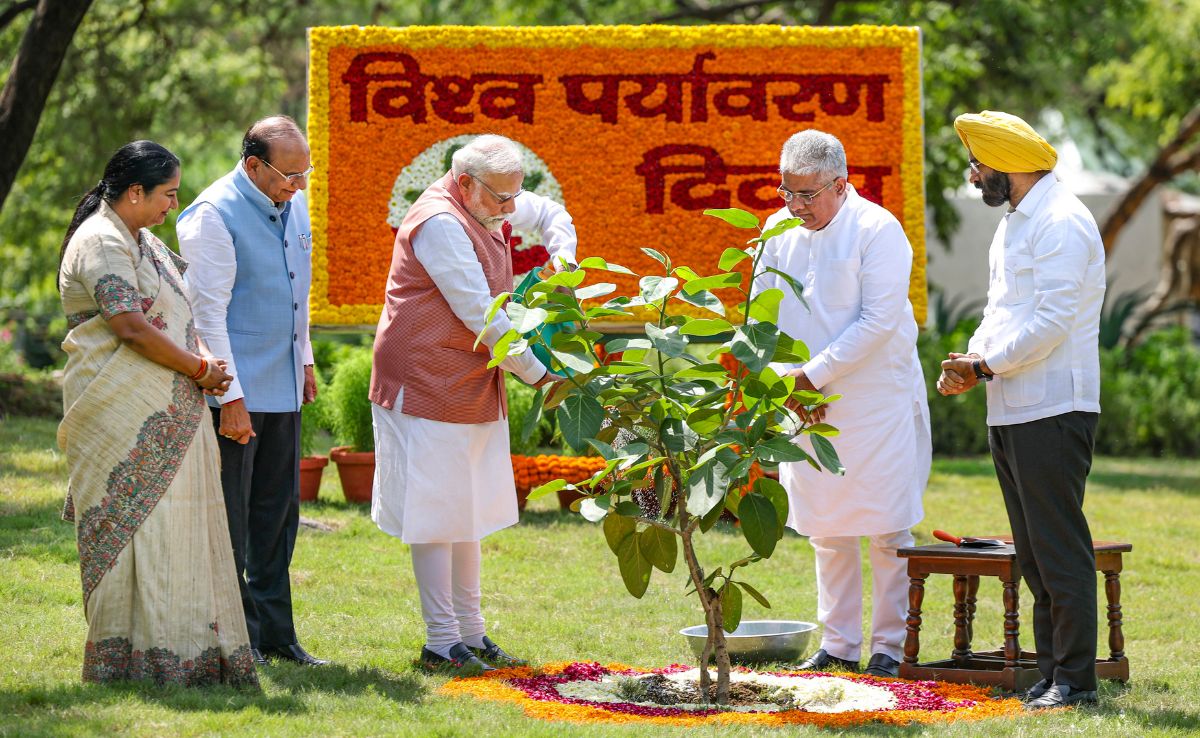New Delhi, June 5, 2025:-
Prime Minister Narendra Modi marked World Environment Day by planting a Sindoor (Bixa orellana) sapling at his official residence, a gesture steeped in both ecological and emotional significance.
This was no ordinary sapling. It was a heartfelt gift from the women of Madhapar village in Gujarat’s Kutch district, who gained national recognition for their unmatched courage during the 1971 Indo-Pak war. In a moment of crisis, these brave women — now remembered as ‘Viranganas’ — helped the Indian Air Force rebuild the bombed Bhuj airstrip in just 72 hours, working day and night under enemy threat.
During his recent visit to Bhuj on May 26, Prime Minister Modi had met 13 of these heroines and promised to plant the sapling as a living tribute. True to his word, the Sindoor plant now stands tall at 7, Lok Kalyan Marg, symbolizing their resilience, patriotism, and sacrifice.
Taking to social media, the PM wrote,
“This sapling is not just a plant. It’s a tribute to the courage of India’s daughters who rewrote history with their bare hands.”
The act also aligns with the announcement of a new initiative — ‘Sindoor Van’, a memorial park to be developed near Bhuj. The project commemorates Operation Sindoor, launched in response to the Pahalgam terror attack, and aims to honor India’s armed forces while fostering environmental awareness. The park will feature over 80,000 native plants, along with thematic zones designed to blend nature with national pride.
The Sindoor plant, traditionally used in Indian rituals, holds a special place in Indian culture as a symbol of valor, sacrifice, and feminine strength — making it the perfect choice for the occasion.
With this symbolic act, Prime Minister Modi seamlessly wove together the threads of environmental stewardship, cultural respect, and patriotic remembrance, underlining how the nation’s past sacrifices continue to shape its future.











